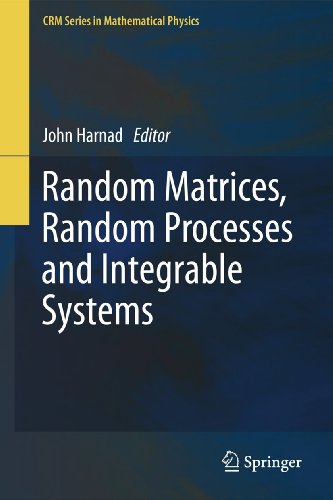

Most ebook files are in PDF format, so you can easily read them using various software such as Foxit Reader or directly on the Google Chrome browser.
Some ebook files are released by publishers in other formats such as .awz, .mobi, .epub, .fb2, etc. You may need to install specific software to read these formats on mobile/PC, such as Calibre.
Please read the tutorial at this link: https://ebookbell.com/faq
We offer FREE conversion to the popular formats you request; however, this may take some time. Therefore, right after payment, please email us, and we will try to provide the service as quickly as possible.
For some exceptional file formats or broken links (if any), please refrain from opening any disputes. Instead, email us first, and we will try to assist within a maximum of 6 hours.
EbookBell Team

4.7
26 reviewsThis book explores the remarkable connections between two domains that, a priori, seem unrelated: Random matrices (together with associated random processes) and integrable systems. The relations between random matrix models and the theory of classical integrable systems have long been studied. These appear mainly in the deformation theory, when parameters characterizing the measures or the domain of localization of the eigenvalues are varied. The resulting differential equations determining the partition function and correlation functions are, remarkably, of the same type as certain equations appearing in the theory of integrable systems. They may be analyzed effectively through methods based upon the Riemann-Hilbert problem of analytic function theory and by related approaches to the study of nonlinear asymptotics in the large N limit. Associated with studies of matrix models are certain stochastic processes, the "Dyson processes", and their continuum diffusion limits, which govern the spectrum in random matrix ensembles, and may also be studied by related methods.
Random Matrices, Random Processes and Integrable Systems provides an in-depth examination of random matrices with applications over a vast variety of domains, including multivariate statistics, random growth models, and many others. Leaders in the field apply the theory of integrable systems to the solution of fundamental problems in random systems and processes using an interdisciplinary approach that sheds new light on a dynamic topic of current research.